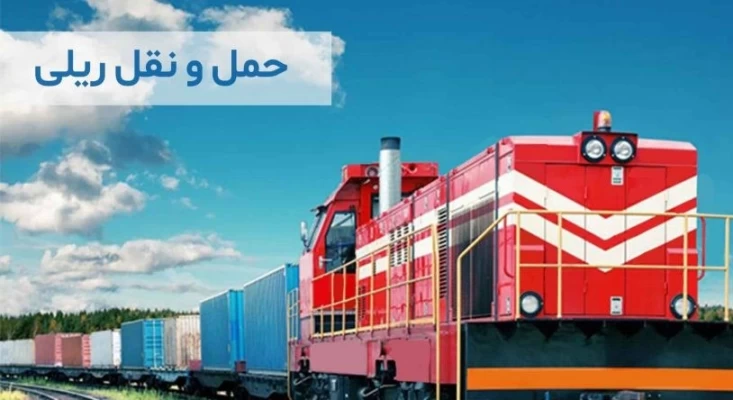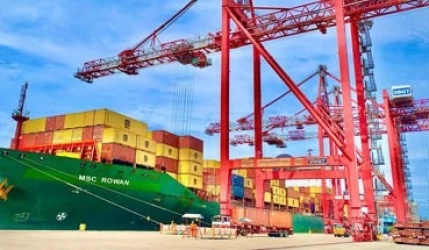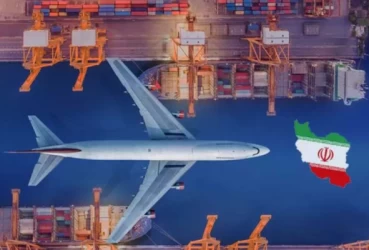Guide to trade with Iran, rail transportation
Iran, situated at the intersection of the Middle East, Central Asia, and Europe, holds a significant position in regional trade. Rail transportation plays a crucial role in Iran's logistics network, facilitating both domestic and international trade. This article provides an in-depth look at the opportunities and challenges of doing business with Iran, with a specific focus on the advantages of rail transport.
1. Importance of Trade with Iran
Iran offers vast opportunities for international business due to its strategic location, natural resources, and large consumer base. Key reasons for considering trade with Iran include:
- Strategic Location: Iran acts as a bridge between Asia and Europe, serving as a vital transit hub for regional trade.
- Rich Natural Resources: As one of the world’s largest producers of oil and gas, Iran is a crucial player in global energy markets.
- Growing Market Demand: With a population of over 85 million, the Iranian market demands a wide range of goods and services.
2. Advantages of Rail Transportation in Iran
Rail transportation is a preferred mode of cargo movement in Iran due to its economic efficiency and environmental benefits. Key advantages include:
- Cost-Effective for Bulk Cargo: Railways are ideal for transporting large volumes of goods such as agricultural products, minerals, and industrial goods.
- Environmentally Friendly: Trains produce less carbon emissions compared to road and air transport.
- International Connectivity: Iran’s rail network connects to neighboring countries, such as Turkey, Turkmenistan, and Pakistan, enabling smooth cross-border trade.
- Weather-Resistant: Rail transport is less affected by weather conditions, ensuring reliable delivery schedules.
3. Iran’s Rail Network and International Corridors
Iran's rail infrastructure covers major industrial hubs and cities, playing a crucial role in domestic and international logistics. Key international corridors passing through Iran include:
- North-South Transport Corridor (NSTC): This corridor connects India, Iran, Russia, and Europe, offering a shorter and more efficient trade route than traditional maritime paths.
- East-West Corridor: Iran connects Central Asian countries and China with Europe, contributing to initiatives like the New Silk Road.
These corridors enhance Iran’s role as a transit hub and create opportunities for businesses involved in logistics and freight services.
4. Challenges and Opportunities in Rail Transport
Challenges:
- Impact of Sanctions: International sanctions limit access to financing and modern equipment, hindering the upgrade of rail infrastructure.
- Aging Rolling Stock: Parts of Iran’s rail fleet require modernization, which may affect operational efficiency.
- Customs and Bureaucracy: Complex customs procedures can lead to delays in the movement of goods.
Opportunities:
- Foreign Investment in Rail Infrastructure: Iran is open to foreign investment in the development of its rail network and freight services.
- Increased Transit Revenues: With strategic projects like the Chabahar Port development, Iran can attract more transit traffic.
- Regional Cooperation: Iran can enhance trade and logistics cooperation with neighboring countries through rail transport partnerships.
5. Key Considerations for Successful Business with Iran
- Understand Legal and Customs Regulations: Familiarity with Iran’s trade laws and customs processes is essential for smooth operations.
- Partner with Local Experts: Collaborating with Iranian companies or consultants can provide insights into the local market.
- Plan for Sanctions and Financial Risks: Businesses need to assess risks related to currency fluctuations and restrictions on financial transactions.
- Leverage Rail Transport: Utilizing rail freight services can reduce costs and enhance delivery efficiency, particularly for bulk goods.
6. Conclusion
Iran’s rail transportation network plays a vital role in facilitating trade, both domestically and internationally. Despite challenges such as sanctions and infrastructure needs, Iran offers significant opportunities for businesses in sectors like energy, agriculture, and logistics. By leveraging rail corridors, investing in logistics, and forming strategic partnerships, businesses can successfully navigate the Iranian market.
If you have any specific questions or need further assistance, feel free to ask!











